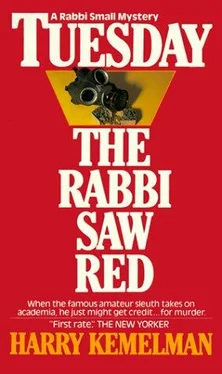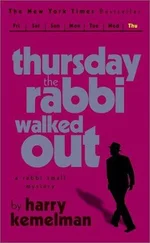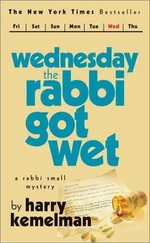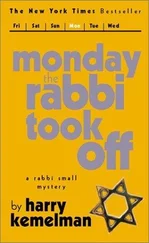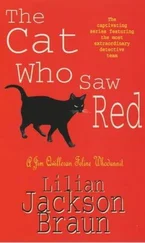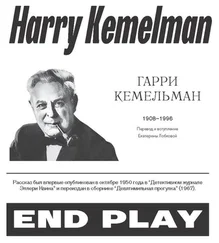On the school committee he had espoused the cause of the teachers. His father-in-law remonstrated. "Why do you want to get tied in with a pay raise for teachers? It's going to mean a jump in the tax rate. Matt, and you won't get a damn thing out of it, the teachers ain't like the cops or the firemen, they're a bunch of rabbits, they got no clout, they won't go to bat for you come election time, they'll vote for you, but you won't get those snooty bastards going around ringing doorbells."
"But they've got better contacts with the media." said Matthew Rogers.
The pay raise was compromised, but he was now the one liberal on the committee, and when reporters and TV newscasters covered a meeting of the school committee, he was the one they usually interviewed.
After a couple of terms on the school committee, he had run for district attorney of the county, again projecting the family-man image in his campaign, with the slogan "Vote for Matt Rogers and make Suffolk County a decent place to bring up your family." This time his campaign pictures showed him seated beside his now somewhat more matronly wife, with the two older girls, quite the young ladies, standing on either side of their parents, a third sitting on the floor, and a fourth on her mother's lap, again he won handily.
He had taken office just as the student riots were beginning. When trouble broke out in Hollings College, he had seized the opportunity to demonstrate his capacity for leadership— against the advice of his chief assistant, the senior assistant district attorney, Bradford Ames.
"Don't do it, Matt," Ames told him. "These aren't hoods, they’re college kids from nice families, some of them with a lot of political influence, and you'll find when you go into court that the college authorities won't back you up. Keep out of the line of fire and let the cops handle it, or you'll get clobbered."
Rogers had stared at him, uncomprehending. "They've taken possession of one of the buildings, haven't they? They've destroyed buildings. Do you expect me to stand by idly while private property is seized? It is private property, isn't it?"
Bradford Ames was in his fifties, quite a bit older than his chief, he came from an old and wealthy Boston family and had no difficulty wangling an appointment as assistant district attorney immediately after passing the bar exam, a bachelor, he found his niche in the district attorney's office, where he was content to remain, although of medium height, he looked short because he was well-fleshed. His suit, though tailor-made and expensive, looked rumpled and ill-fitting because, sitting or standing, he slouched, he wore old-fashioned stiff detached collars, which appeared too tight for him and tended to make his head look bigger than it was, he was a smiley, chuckling, Dutch uncle of a man, so that when on occasion his face became stem and grave, as it did sometimes when addressing a jury, everyone in the courtroom felt that a horrendous crime indeed had been committed, he knew intimately all the clerks, criminal lawyers, and judges, knew their special characteristics and idiosyncrasies, but he also had an instinctive feeling for political considerations and he had been invaluable to a succession of district attorneys, unobtrusively training them in their jobs.
He shifted uncomfortably from foot to foot under Rogers' stare and then emitted an embarrassed chuckle. "Well, it is and it isn't private property, a college is actually a community of scholars that developed into a corporation with trustees and officers who appoint the president. In the Middle Ages, on the other hand, a lot of colleges were set up by the students, they hired the faculty and fined them when they were late for their lectures. What I'm saying is that it could be argued that the college belongs to the students as much as it does to the administration."
But Rogers had persisted— and he had indeed got clobbered. For a few days he'd had a fine time, issuing statements to the press, getting photographed, conferring with the college president and the dean, planning strategy with the police. It had resulted finally in a heated confrontation between police and students with physical injuries sustained on both sides, and suddenly, he was the villain, target of dozens of denunciatory letters in the press and even an editorial or two, he discovered, to his surprise, that many of the faculty sided with the students and that even the administration was having second thoughts. To his great disgust, when the case of the ring leaders finally came to trial, the administration showed great reluctance to prosecute, and even the judge, who imposed a small fine, suggested in his summation that perhaps the authorities had overreacted.
Rogers was a politician and he learned his lesson. From then on, whenever there was student unrest, he followed the advice of his chief assistant, Ames, and let the police take the lead. When it was absolutely necessary for his office to appear, he assigned the case to the most junior member, some youngster fresh out of law school, and Ames would brief him. "Keep a low profile, and don't push. Remember, you're just going along for the ride, the chief considers this basically intramural, something for the college to work out, and doesn't want to get involved."
So Bradford Ames was surprised when he found the folder for the Windemere College case on his desk with a note from his superior. "Brad. I want you to handle this one personally." He came in to Rogers' office to discuss it. "How come, Matt?"
"Because this time I want the book thrown at them."
"Why?"
It was not easy for Rogers to explain, a scion of the Massachusetts Ameses looked at things differently from the son of Timothy Rogers, a mail carrier. Take this matter of these college kids raising hell all the time; Brad didn't exactly side with them, but he didn't get too indignant either, as though he thought they might have a point, then, too, the man was a bachelor. How could he understand the feelings of a man with four daughters? To a man with daughters, the direction the world was taking was frightening: a girl living openly with a man and no one, not even the college authorities, thinking anything of it; kids using dirty language to their dean— a lady dean at that— and expecting to get away with it.
Occasionally Matthew Rogers found himself feeling defensive before the aristocratic coolness of his subordinate, so he now said more emphatically than he Normally would: "This one is different, Brad. I know you feel these student riots are none of our business, and I go along with you; but this involved arson, and arson by its very nature is not an intramural sport."
"There is that of course."
"And a man was killed."
"Well, that appears to have been an accident."
Then defiantly: "And I think it's good politics. I think we're at a turnaround. Brad. I think the public is goddam fed up with these goddam radical kids doing whatever they goddam please. So by taking control now. I think I can demonstrate leadership."
Ames smiled. "You planning to run for attorney general next time around. Matt?"
"I’ve thought of it." said Rogers evenly, Ames saw he meant business.
"We don't have too much of a case, you know, the youngsters claim they had nothing to do with the bombing."
"Naturally."
"And there isn't much evidence that they did, not anything that would stand up in a court."
"How about the fact that one of them ran away?"
"We don't know that he did." said Ames. "He could have just taken off someplace the way kids do."
"How about the time?" Rogers persisted. "The dean says she left her office around quarter of three, the kids admit they remained until three, a few minutes later the bomb goes off. Who else could have done it?"
"The caretaker stated the doors of the building are left open, anyone could have come in. It could be another student group. I understand there are at least half a dozen of various shades of radicalism."
Читать дальше
